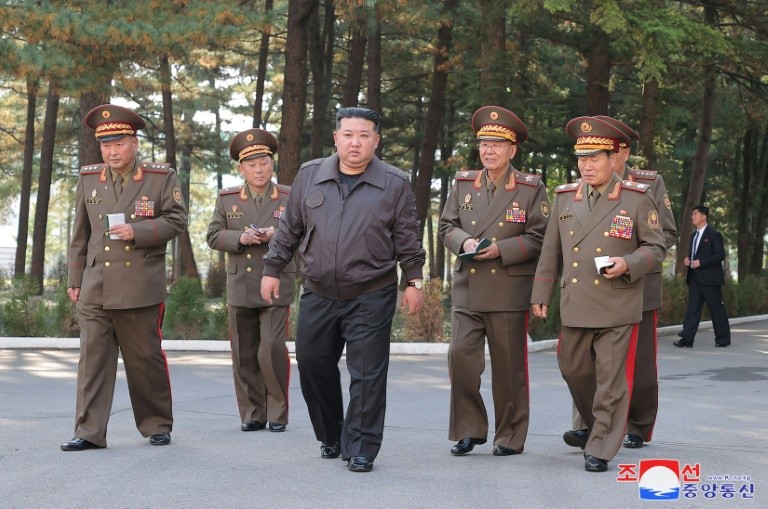
North Korean leader Kim Jong Un has ordered the "mass production" of suicide attack drones, state media reported on Friday, after he witnessed a test of the weapons system a day earlier.
Kim oversaw the tests of drones designed to hit both land and sea targets, produced by North Korea's Unmanned Aerial Technology Complex (UATC).
"He underscored the need to build a serial production system as early as possible and go into full-scale mass production," Korean Central News Agency (KCNA) reported.
"Suicide drones" are explosive-carrying unmanned drones designed to be deliberately crashed into enemy targets, effectively acting as guided missiles.
Pyongyang unveiled its suicide drones for the first time in August, with experts saying the capability may be attributable to the country's deepening alliance with Russia.
Thursday's test saw the drones "precisely" hit targets after flying along predetermined paths, KCNA reported.
"The suicide attack drones to be used within different striking ranges are to perform a mission to precisely attack any enemy targets on the ground and in the sea," the agency said.
Kim said the drones were an "easy to use... component of striking power" due to their relatively low production cost and expansive range of applications, as per KCNA.
He said the North had "recently attached importance" to developing unmanned hardware systems and to integrating them with the country's overall military strategy.
Experts said the drones -- in images released by state media in August -- looked similar to the Israeli-made "HAROP" suicide drone, Russian-made "Lancet-3" and Israeli "HERO 30".
North Korea may have acquired these technologies from Russia, which in turn likely obtained them from Iran -- with Tehran itself suspected of accessing them through hacking or theft from Israel.
In 2022, Pyongyang sent drones across the border that Seoul's military was unable to shoot down, saying they were too small.
South Korea launched a drone operation command last year to better address the growing threat.
And earlier this year, Pyongyang accused Seoul of violating its sovereignty by flying drones over its territory to drop propaganda leaflets.
South Korea's military has denied the allegation.
In October, the North amended its constitution to define South Korea as a "hostile" state, an illustration of a sharp deterioration in ties since Kim in January declared Seoul his country's "principal enemy".
The North has continued to carry out UN sanctions-defying ballistic missile tests, and in October blew up roads and railways linking it to the South.








